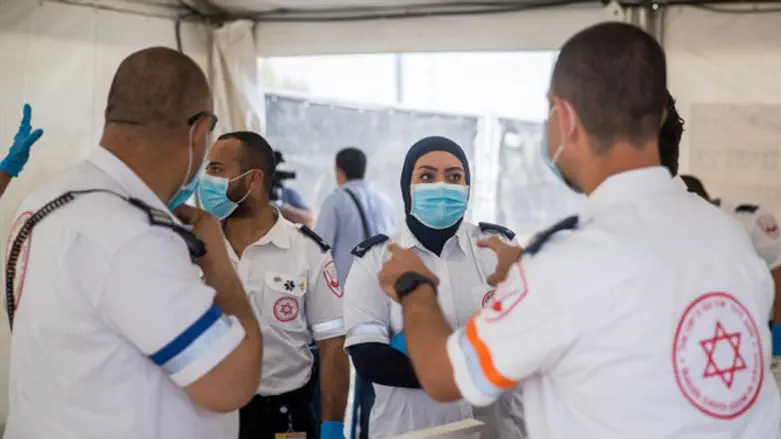
A new study conducted on Israeli health workers suggests that people infected with the coronavirus develop a large degree of immunity to the virus – even when COVID antibody levels are low or even non-existent.
According to a report Tuesday by Channel 12, a research paper signed by Dr. Tal Brosh, chief of Assuta Hospital’s Infectious Disease Unit and a member of the governmental committee on distributing the coronavirus vaccine, found that COVID reinfections are extremely rare, and that the widely-available, commercially distributed serological tests for coronavirus antibodies are ineffective at determining whether a person has developed immunity to the virus.
“According to the existing data today, serological tests for the presence of antibodies are not an effective tool for assessing whether there is a sufficient level of antibodies to offer immunity from infection, either from natural infection or from vaccination,” the research paper reads in part.
“Therefore, it is not recommended that these tests be used to track progress after receiving the vaccine, except as part of medical research.”
The authors of the research paper noted that studies have shown that COVID antibody levels tend to drop significantly in the blood samples taken from recovered patients after four to eight months from the time of infection. Nevertheless, even subjects without COVID antibodies tended to have effective immunity to the virus.
The study examined some 12,000 health care workers who were infected with the coronavirus, then recovered. While some of the subjects developed antibodies, according to the serological tests, others did not. The results of the serological tests, however, gave little indication of overall immunity, the study found. Despite many of the subjects having no measurable COVID antibodies, reinfections were found to be extremely rare.
“We have no data which would indicate that the level of antibodies found by the various commercially available tests distinguishes between people who are immune after recovery and those who are not.”
“A person who recovered is to be considered as being immune, even if he has received negative [antibody] serological tests,” the authors concluded, arguing that serological testing should be ended for recovered coronavirus patients.
This is the second recent study which has found that reinfections are rare following natural infection with the coronavirus.
A study of 43,044 people tracked for up to 35 weeks in Qatar found that just 0.02% experienced reinfection, suggesting that natural infection creates a high level of immunity for an extended period of time.

